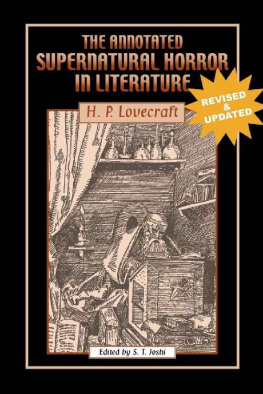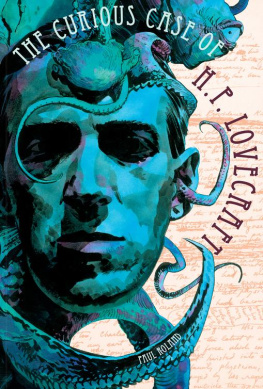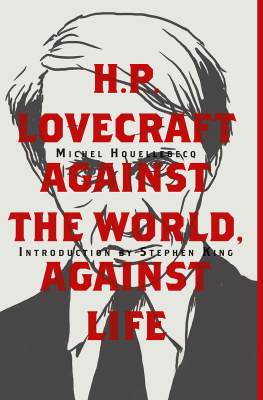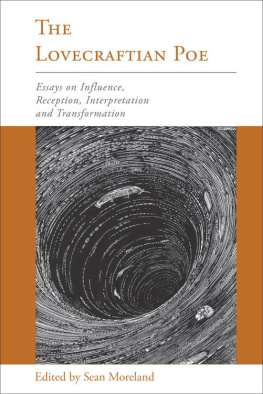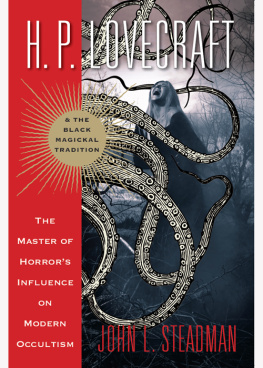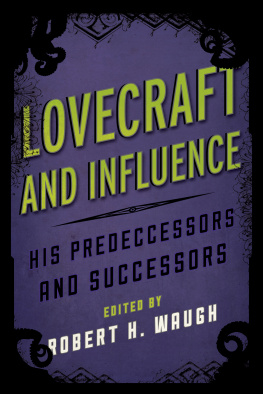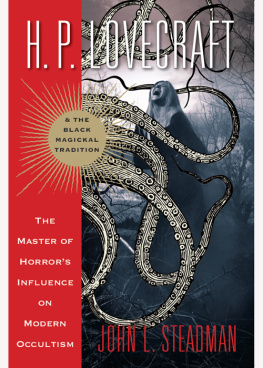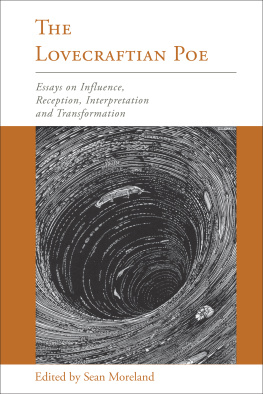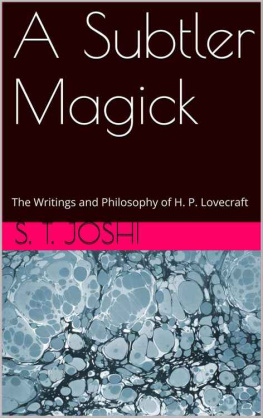H. P. Lovecraft - The New Annotated H. P. Lovecraft
Here you can read online H. P. Lovecraft - The New Annotated H. P. Lovecraft full text of the book (entire story) in english for free. Download pdf and epub, get meaning, cover and reviews about this ebook. year: 2014, publisher: Liveright, genre: Detective and thriller. Description of the work, (preface) as well as reviews are available. Best literature library LitArk.com created for fans of good reading and offers a wide selection of genres:
Romance novel
Science fiction
Adventure
Detective
Science
History
Home and family
Prose
Art
Politics
Computer
Non-fiction
Religion
Business
Children
Humor
Choose a favorite category and find really read worthwhile books. Enjoy immersion in the world of imagination, feel the emotions of the characters or learn something new for yourself, make an fascinating discovery.

- Book:The New Annotated H. P. Lovecraft
- Author:
- Publisher:Liveright
- Genre:
- Year:2014
- Rating:4 / 5
- Favourites:Add to favourites
- Your mark:
The New Annotated H. P. Lovecraft: summary, description and annotation
We offer to read an annotation, description, summary or preface (depends on what the author of the book "The New Annotated H. P. Lovecraft" wrote himself). If you haven't found the necessary information about the book — write in the comments, we will try to find it.
From across strange aeons comes the long-awaited annotated edition of the twentieth centurys greatest practitioner of the classic horror tale (Stephen King).
With an increasing distance from the twentieth centurythe New England poet, author, essayist, and stunningly profuse epistolary Howard Phillips Lovecraft is beginning to emerge as one of that tumultuous periods most critically fascinating and yet enigmatic figures, writes Alan Moore in his introduction to The New Annotated H. P. Lovecraft. Despite this nearly unprecedented posthumous trajectory, at the time of his death at the age of forty-six, Lovecrafts work had appeared only in dime-store magazines, ignored by the public and maligned by critics. Now well over a century after his birth, Lovecraft is increasingly being recognized as the foundation for American horror and science fiction, the source of incalculable influence on succeeding generations of writers of horror fiction (Joyce Carol Oates).
In this volume, Leslie S. Klinger reanimates Lovecraft with clarity and historical insight, charting the rise of the erstwhile pulp writer, whose rediscovery and reclamation into the literary canon can be compared only to that of Poe or Melville. Weaving together a broad base of existing scholarship with his own original insights, Klinger appends Lovecrafts uncanny oeuvre and Kafkaesque life story in a way that provides context and unlocks many of the secrets of his often cryptic body of work.
Over the course of his career, Lovecraftthe Copernicus of the horror story (Fritz Leiber)made a marked departure from the gothic style of his predecessors that focused mostly on ghosts, ghouls, and witches, instead crafting a vast mythos in which humanity is but a blissfully unaware speck in a cosmos shared by vast and ancient alien beings. One of the progenitors of weird fiction, Lovecraft wrote stories suggesting that we share not just our reality but our planet, and even a common ancestry, with unspeakable, godlike creatures just one accidental revelation away from emerging from their epoch of hibernation and extinguishing both our individual sanity and entire civilization.
Following his best-selling The New Annotated Sherlock Holmes, Leslie S. Klinger collects here twenty-two of Lovecrafts best, most chilling Arkham tales, including The Call of Cthulhu, At the Mountains of Madness, The Whisperer in Darkness, The Shadow Over Innsmouth, The Colour Out of Space, and others. With nearly 300 illustrations, including full-color reproductions of the original artwork and covers from Weird Tales and Astounding Stories, and more than 1,000 annotations, this volume illuminates every dimension of H. P. Lovecraft and stirs the Great Old Ones in their millennia of sleep.
H. P. Lovecraft: author's other books
Who wrote The New Annotated H. P. Lovecraft? Find out the surname, the name of the author of the book and a list of all author's works by series.

